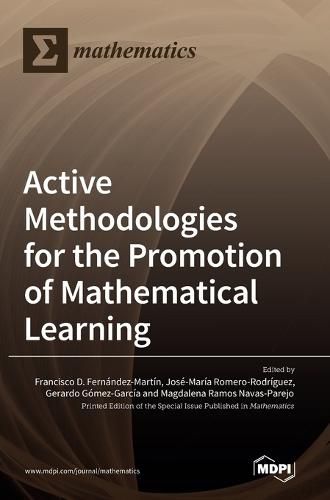Readings Newsletter
Become a Readings Member to make your shopping experience even easier.
Sign in or sign up for free!
You’re not far away from qualifying for FREE standard shipping within Australia
You’ve qualified for FREE standard shipping within Australia
The cart is loading…






This title is printed to order. This book may have been self-published. If so, we cannot guarantee the quality of the content. In the main most books will have gone through the editing process however some may not. We therefore suggest that you be aware of this before ordering this book. If in doubt check either the author or publisher’s details as we are unable to accept any returns unless they are faulty. Please contact us if you have any questions.
In recent years, the methodologies of teaching have been in a process of transition. Multiple active methodologies have proliferated, with the aim of changing the concept we have had of teaching so far. These advocate for a student who plays a leading role in the process of building learning, while the teacher acts as a figure who facilitates and glimpses the paths to learning. In order to be able to carry out this type of teaching in an optimal way, it is necessary for the teaching and research community to be correctly trained in its pedagogical principles and in the tools that boost its implementation. Among these principles and tools, it is of vital importance that information and communication technologies (ICT) be adequately handled. The use of active methodologies (project-based learning, problem-based learning, service learning, flipped classroom, mobile learning, etc.) or innovative pedagogical approaches (simulation, role-playing, gamification, etc.) promotes an improvement in the motivation of students as well as their skills. This aspect is especially important in the area of mathematics, whose contents are characterized by their abstraction, thus highlighting the need for its dynamization in classrooms of different educational stages.
$9.00 standard shipping within Australia
FREE standard shipping within Australia for orders over $100.00
Express & International shipping calculated at checkout
This title is printed to order. This book may have been self-published. If so, we cannot guarantee the quality of the content. In the main most books will have gone through the editing process however some may not. We therefore suggest that you be aware of this before ordering this book. If in doubt check either the author or publisher’s details as we are unable to accept any returns unless they are faulty. Please contact us if you have any questions.
In recent years, the methodologies of teaching have been in a process of transition. Multiple active methodologies have proliferated, with the aim of changing the concept we have had of teaching so far. These advocate for a student who plays a leading role in the process of building learning, while the teacher acts as a figure who facilitates and glimpses the paths to learning. In order to be able to carry out this type of teaching in an optimal way, it is necessary for the teaching and research community to be correctly trained in its pedagogical principles and in the tools that boost its implementation. Among these principles and tools, it is of vital importance that information and communication technologies (ICT) be adequately handled. The use of active methodologies (project-based learning, problem-based learning, service learning, flipped classroom, mobile learning, etc.) or innovative pedagogical approaches (simulation, role-playing, gamification, etc.) promotes an improvement in the motivation of students as well as their skills. This aspect is especially important in the area of mathematics, whose contents are characterized by their abstraction, thus highlighting the need for its dynamization in classrooms of different educational stages.